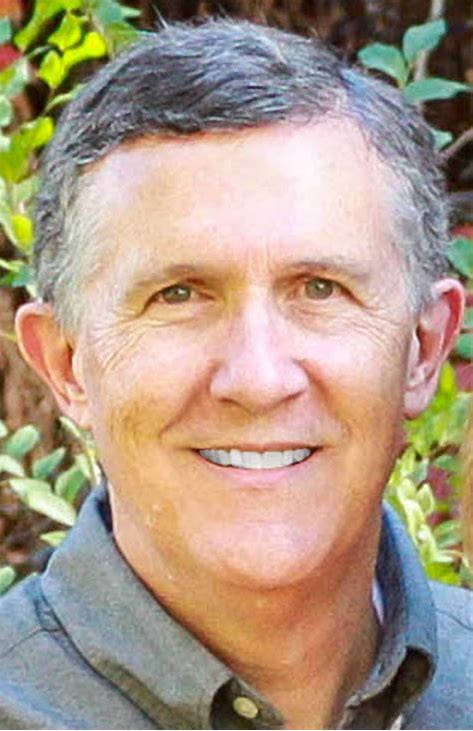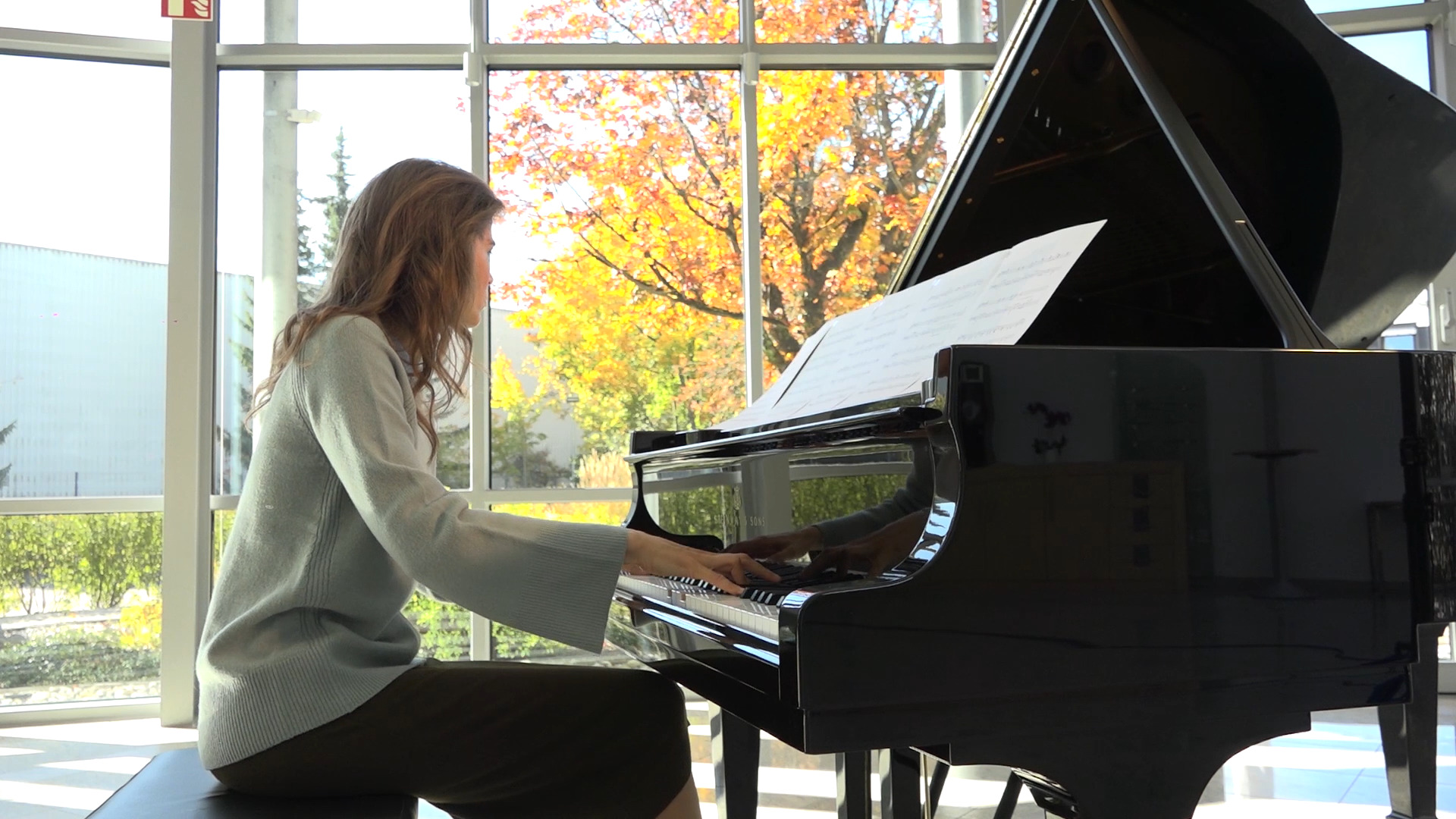Great to have you back!

1
Videos
About
Kevin is an award-winning composer who has written over 1000 pieces of music. He specializes in choral music and piano solos and duets from beginning to advanced. He has written in many different styles including classical, modern, boogie, blues, pop, educational, sacred and electronic. He has written a modern string quartet and music for small ensemble. His music has been performed the world over, including several performances in the historic Assembly Hall on Temple Square in Salt Lake City, Utah. He has maintained a private piano studio for over 40 years. Currently, he lives with his beautiful wife in West Jordan, Utah. He has six children and 17 grandchildren. Kevin has a bachelor's degree in music composition from the University of Utah. He also has Bachelor's and Master's degrees in Special Education. He studied piano performance at the University of Utah with Dr. Bonnie Winterton.
Sheets
Interview
What does music mean to you personally?
I love music. From a very early age I loved listening to my mother play the piano. I wanted to play the piano better than my mother (’m a bit competitive by nature). I have always loved various styles of music. I love a quiet, meditative piece as well as a fiery piece. I love the blues and love dabbling in the avant-garde.
Do you agree that music is all about fantasy?
I had never thought about this before, but I do agree. Music can take you places, emotionally, spiritually, even physically. I love to read fantasy novels. I love the way these novels transport me to unknown realms. In a similar way, I love the way music does this same thing. I lifts and invigorates my spirit.
If you were not a professional musician, would would you have been?
I actually was a special education teacher for 32 years. At the same time I pursued music through piano performance and composition. The last several years I have become a full-time composer and piano teacher.
The classical music audience is getting old, are you worried about your future? I am optimistic about the future. I love introducing my students to the classical music world. It is so fun to see them embrace classical music and grow to love it as I do.
What do you envision the role of classical music to be in the 21 century? Do you see that there is a transformation of this role?
I see classical music continuing into the future. Media such as movies and video games will continue to use classical music to portray the emotional content required. Hopefully, people such as yourself will continue to perform new works along with the old.
When I say that classical music is searching for new ways or that the classical music is getting a new face, what would come to your mind?
There does seem to be a melding of the concept of the “rock star” with some classical performers. Lang Lang is a good example. He has become popular somewhat through his flamboyance, but coupled with his brilliant piano playing. But I hope that there will always be a place for the beautiful performance as well - without so much of the show. YouTube has become a place to showcase performance. Personally, I love to watch a lovely or brilliant performance on the concert stage without bells and whistles - just to enjoy the only the musical composition itself. But I also love a great performance enhanced by showmanship and ambience.
Do you think that the classical musician today needs to be more creative? What’s the role of creativity in the musical process for you?
To become a well-known musician, it seems many have felt the need for a gimmick to attract the masses. Lady Gaga is an example. I think she is a good, creative musician. She invented a “crazy” name and a provocative performance style to gain popularity. As a composer, I feel creativity is everything. I love to take an idea and flesh it out. Titles for compositions often come during the writing of the piece. Sometimes the title comes after the piece is finished and I explore various things and places that seem to fit with the music.
Do you think we musicians can do something to attract young generation into the classical music concerts? How will you proceed?
I think many young musicians are drawn into the classical realm through movies, video games and YouTube videos. Many of my students have requested to learn a piece after hearing it in a movie or video game. For example, the movie “Oceans 11” featured the music of Debussy’s piano classic “Clair de Lune.” One student asked if she could learn it, not even knowing the name of the piece. Other students have been attracted to new classical compositions after playing video games. I encourage my students to bring those ideas to me and work with them as much as I can to learn to perform these pieces.
Tell us about your creative process. Do you have your favorite piece (written by you) How did you start working on it?
I like to compose at the piano. I often sit at the piano and just begin improvising. When I stumble across something that attracts my ear, I record it. Then I work with the idea until it becomes a full piece of music. The music often comes to me slowly. I will play through a piece multiple times looking for what is still needed until it feels complete. Occasionally, an idea comes to me almost all at once. I then frantically try to get the whole thing written down before it is lost to me. I have multiple favorite pieces which I have written. Some are just fun, some are more serious in nature. “March of the Martians” began as an improvisation. As my young children began to march around the room to the rhythm of the music, I worked out the details into a completed piece. “Toccata” also began with a improvisation. It took me 30 years to finish it. Many pieces come about through dreaming of beautiful places on this beautiful earth. “Havana” was written after the United States began allowing more access to Cuba. This is how much of my music comes about.
We, Moving Classics TV, love the combination of classical music with different disciplines: music and painting, music and cinematography, music and digital art, music and poetry. What do you think about these combinations?
I love these combinations. I once wrote a string quartet based on a painting. The painting was by John Martin and entitled “The Plains of Heaven”. The music has the same title. I also love to take poetry and set it to music. I have written many sacred hymns using the poetry of some brilliant writers.
Can you give some advice for young people who want to discover classical music for themselves?
Be open to listen to various types of music. Be aware of the music in movies and video games. Explore musical performance on YouTube. Attend classical music concerts even when you don’t know the music being performed. Listen to classical music radio stations.
Now it is a common practice in the media to talk that the classical music is getting into the consumption business, do you agree? We are speaking about the supply and demand rules and how to sell your “product” in your case your compositions. How do you see it?
I write the music that I love. I don’t write it to simply sell it. I write because I have a need to write. I am driven to write music. As a secondary thing, it’s nice to be able to sell my compositions to make a living. Unfortunately, we all have to struggle to make money to put groceries on the table and a roof over our heads.
Do you have expectations what regards your listeners, your audience?
I feel that listeners should be respectful. I enjoy a positive comment from my listeners. It’s very nice to know that other people like the music that I have written.
What projects are coming up? Do you experiment in your projects?
I would like to write more music outside of the piano realm. I am pondering writing more for small ensemble. I would also like to do a few more “modern” or “atonal” music, but still keep it beautiful and singable. I do experiment a lot. I like to take a mode or scale and see what can be done with it. I recently invented a new scale with a piano student name Kara. We named the scale the “Karatonic” scale. I then wrote the piano solo entitled “The Karanonic Secret” using this scale as a basis for the composition.
Copyrights © 2019 Moving Classics TV All Rights Reserved.
